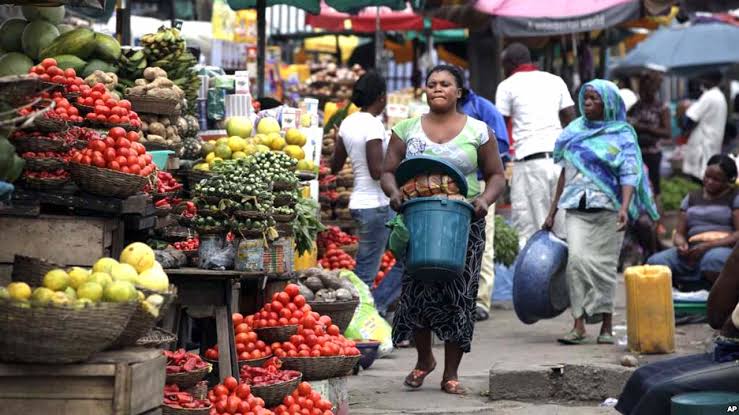
Nigeria’s inflation rate has surged to 34.60% in November, according to the National Bureau of Statistics (NBS).
This represents a 0.72% increase from the 33.88% recorded in October 2024.
The rise in inflation is attributed to increases in food prices, exchange rate fluctuations, and hikes in transport, housing, and utility costs. Food inflation, in particular, jumped to 39.93% on a year-on-year basis, driven by price increases in potatoes, yam, guinea corn, maize grains, rice, beer, palm oil, and vegetable oil.
On a month-on-month basis, the food inflation rate rose to 2.98% in November, up from 2.94% in October. This increase is linked to higher prices of mudfish, catfish, rice, yam flour, millet, corn flour, agric egg, powered milk, fresh milk, dried beef, goat meat, and frozen chicken.
The report said: “The rise in food inflation on a year-on-year basis was caused by increases in prices of the following items; Yam, Water Yam, Coco Yam, etc (Potatoes, Yam & Other Tubers Class), Guinea Corn, Maize Grains, Rice, etc (Bread and Cereals Class), Beer, Pinto (Tobacco Class), and Palm Oil, Vegetable Oil, etc (Oil and Fats Class).
“On a month-on-month basis, the Food inflation rate in November 2024 was 2.98% which shows 0.05% points increase compared to the rate recorded in October 2024 (2.94%). The rise is attributed to the rate of increase in the average prices of Mudfish, Catfish Dried, Dried Fish Sadine, etc (Fish Class), Rice, Yam Flour, Millet Whole grain, Corn flour, etc (Bread and Cereals Class), Agric Egg, Powered Milk, Fresh Milk, etc (Milk, cheese and eggs Class) and Dried Beef, Goat Meat, Frozen Chicken, etc (Meat Class).”
The average annual rate of food inflation for the twelve months ending November 2024 over the previous twelve-month average was 38.67%, which was 11.58% points higher compared with the average annual rate of change recorded in November 2023.
